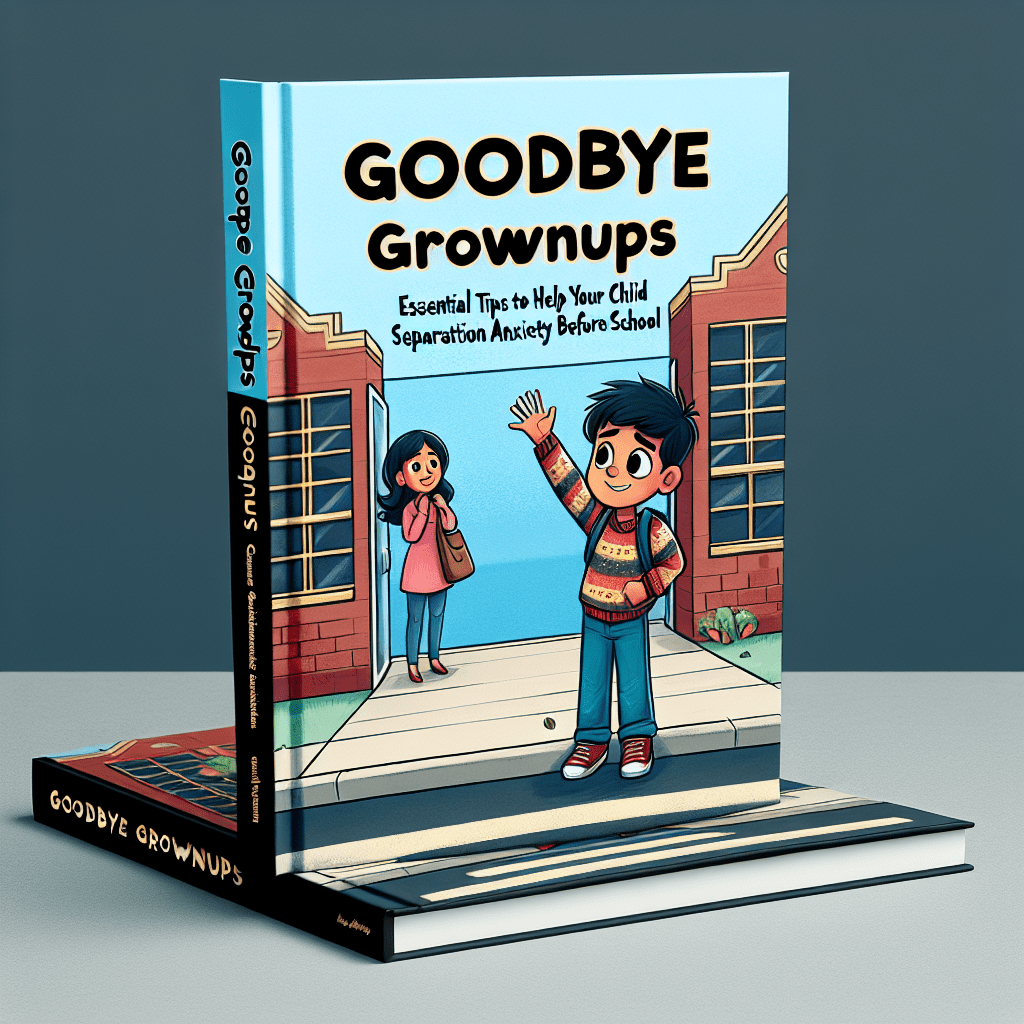

Goodbye Grownups: Essential Tips to Help Your Child Overcome Separation Anxiety Before School
As a caregiver and veteran parent, I’ve navigated the choppy waters of separation anxiety more times than I can count. It can be heart-wrenching to see your little one struggle with the idea of being apart, especially as they prepare to embark on the exciting journey of school. But fear not! With the right techniques and a sprinkle of enthusiasm, we can help our children feel confident and ready to say “goodbye grownups.” Today, I’ll share some practical tips drawn from my personal experiences along with insights from child development professionals.
Understanding Separation Anxiety
Separation anxiety is a natural milestone in your child’s development. It typically surfaces between the ages of 6 months to 3 years and can rear its head again around preschool time.
-
What is Separation Anxiety?
- It’s an emotional response where your child fears being apart from you. They might cling, cry, or express worry verbally. Understanding that this is a common behavior helps us approach it with empathy and patience.
-
Why Does It Happen?
- Children thrive on routine and familiarity; school represents a significant change. It may bring fear of the unknown or separation from their safe haven—home. Knowing the ‘why’ empowers us to better support our children.
-
Who Experiences It?
- Children of all ages, personalities, and backgrounds can experience separation anxiety. However, some children may be more prone to it due to temperament.
Preparing for School: Creating a Positive Environment
Preparation is key to easing separation anxiety. By creating a supportive atmosphere, you can help your child feel more at ease as they start school.
-
Practice Short Separations
- Start with brief intervals apart and gradually increase the duration. This helps your child learn that you will always come back.
-
Visit the School Together
- Spend time at the school beforehand. Familiarizing your child with their new environment, teachers, and classmates can alleviate anxiety.
-
Create a Goodbye Ritual
- Establish a special way to say goodbye. This could involve a unique handshake, a silly song, or a comforting object they can keep with them.
Establishing Routines
Routine provides a foundation on which your child can build trust and comfort. Here’s how you can incorporate it:
-
Morning Routine
- Create a consistent morning routine that includes time for breakfast, getting dressed, and some fun interactive play.
-
Visual Schedules
- Use a visual calendar to highlight your child’s schedule, including school days and fun family activities, so they can anticipate and look forward to these events.
-
Storytime About School
- Read books about starting school together. Narratives featuring relatable characters can help project positive feelings towards school.
Encouraging Independence and Resilience
Building your child’s self-esteem fosters independence, giving them the tools to conquer separation anxiety.
-
Encourage Problem-Solving
- Allow your child to tackle small tasks independently. Whether it’s dressing themselves or organizing their toys, these little triumphs build confidence.
-
Praise Efforts, Not Just Achievements
- Celebrate small victories related to independence. Reinforce collaboration toward tasks they can manage.
-
Role-Playing Scenarios
- Roleplay potential school situations. For instance, practice how they’d greet a new friend or ask a teacher for help, helping them visualize positive interactions.
Seeking Professional Guidance
If separation anxiety persists or escalates, don’t hesitate to consult a professional.
-
Talk to Teachers
- Maintain an open dialogue with your child’s teacher. They can provide support and helpful strategies specifically tailored to nurture your child’s well-being in school.
-
Consider Counseling
- If needed, consider engaging a child psychologist who can work with you and your child in managing anxiety effectively.
-
Support Groups
- Connect with other parents in similar situations. Sharing your experiences can provide reassurance and new strategies you haven’t yet tried.
FAQs About Separation Anxiety
Q: Is separation anxiety normal?
A: Yes! It’s a typical part of child development, especially when facing new experiences like school.
Q: How can I tell if my child’s anxiety is severe?
A: If your child’s anxiety leads to physical symptoms or significantly interferes with daily life, it may be time to consult a professional.
Q: What if my child cries every day at drop-off?
A: This is common. Consistency is important; make sure to keep your goodbye short, sweet, and loving.
Q: Are there resources I can use?
A: Absolutely! Books, websites, and local parenting groups can be incredibly helpful.
Q: How can I create a comforting environment?
A: Encourage open communication. Share feelings and ensure your child knows they’re not alone in this transition.
By working together, we can guide our children through their anxieties and help them embrace their new adventure. Remember: school is not just an end—it’s a new beginning.
Disclaimer: As an Amazon Associate, I earn from qualifying purchases; I may earn a commission from qualifying purchases as an affiliate. Please note that I only recommend products I believe will provide value to my readers.
Transitioning to school can seem daunting, but with love, understanding, and proper guidance, we can turn "goodbye grownups" into a stepping stone for a fulfilling journey ahead.







